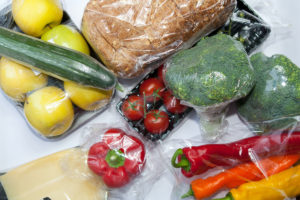The Final Straw: Collaboration Is the Answer to Canada’s Plastic Pollution Problem
The present state of plastic pollution is a concern that has been embraced globally. From paper clips to airplane components, plastic’s universal applications have meant a 200-fold increase in production since 1950. In fact, it’s estimated that if current rates of production are maintained we’ll have created 26 billion tonnes of plastic by 2050.
Plastic’s very success may lead to its demise. Plastic waste has overtaken landfills and waterways, and unintentionally invaded our food chain. While environmental and health effects are the main focus of the world’s concerns, economic loss of material is equally concerning. Additional research found that by 2030, Canada’s lost opportunity related to unrecovered plastics could rise to $11.1 billion.
That’s why a future approach to manage plastic waste depends on governments, businesses, and citizens collaborating on three solutions.
Change the economics
Governments need to reassign the cost of managing plastics to producers and their respective supply chains. The cost of management will, at minimum, spur new collection and recycling initiatives to better balance disposal and recycling, and may also provide the necessary incentive to foster new innovations, design, systems, and partnerships.
Shift markets in order to create demand
Governments, private enterprises, and consumers must require products and services that avoid single-use, encourage reusability and durability, support material alternatives, and maximize recycled content in order to draw materials from disposal.
Invest in innovation
We need a dragons’ den open to entrepreneurs, businesses, academia, and anyone else who wants to trial an idea to reduce plastic waste, along with the necessary support to bring it to market.
Plastic was first developed by a single individual whose invention made life more convenient and seemingly less costly. Since then, the environmental toll has spiralled out of control. The solutions require collective action that involve all of us — the future of plastics and our environment depends on it.
Author: Jo-Anne St. Godard, Recycling Council of Ontario
Read the full and original article at innovatingcanada.ca



